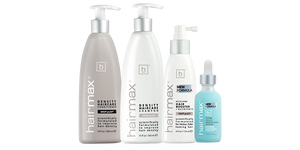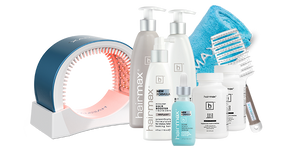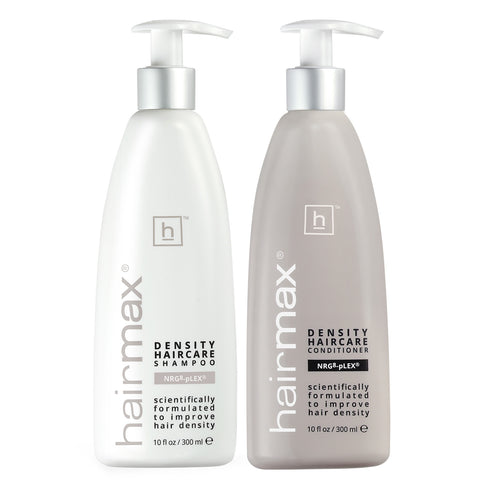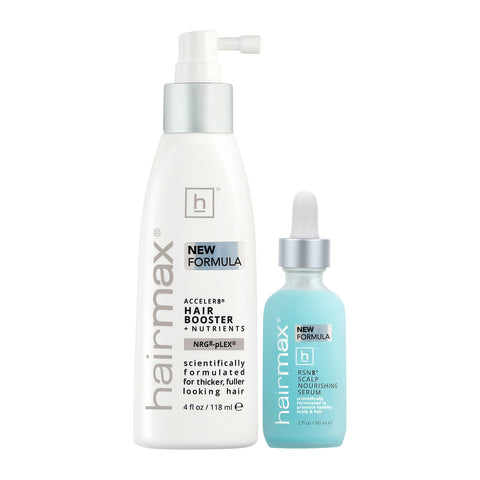Authored by: Yuliia Chorna, Dermatologist and Trichologist
Today, we are talking about an important topic - the aging of our hair. It is no secret that our hair ages right along with us. Look at the photos of movie and music stars from their youth and now, and you will see that aging hair can sometimes be harder to conceal than aging facial skin. Aging hair manifests itself in various ways, including graying, slowed growth, thinning, and hair loss. Let's delve into each of these signs, and by the end of this article, I will provide some advice on how to deal with them.
Graying Hair
As we age, the production of melanin, the pigment responsible for hair color, diminishes. This leads to the appearance of colorless or gray hairs. Graying is a concern for both men and women. There is not much you can do to prevent graying aside from coloring your hair. However, an increasing number of people are proudly showcasing their gray hair and emphasizing that gray is just as beautiful as black, red, or any other hair color.
Slowed Hair Growth
I often hear this concern from patients over 40. Why does it happen? It's because hair follicles become less active, and the skin produces fewer growth-promoting substances called growth factors that regulate the hair growth phase's duration. Additionally, chronic inflammation develops within hair follicles with age, causing hair to only grow to a certain length and then stop.
Texture Deterioration and Hair Shaft Thinning
With age, hair becomes drier, thinner, and more prone to damage, which leads to increased hair breakage and overall hair thinning. One reason for this is the deterioration of the digestive system, leading to reduced absorption of essential nutrients. The body experiences deficiencies in specific amino acids, minerals, and water, all of which are crucial for healthy hair shafts. Another reason is the significant decrease in the number of tiny blood vessels in the scalp's skin. Research has shown that after the age of 40 the number of microvessels in the skin decreases by 40%, significantly reducing the supply of nutrients to hair follicles.
Hair Loss
All the aforementioned factors can contribute to hair loss. This becomes particularly relevant during menopause, a period when women experience a decrease in female sex hormones like estrogen and progesterone. This type of hair loss is known as Androgenic Alopecia, and in women, it affects the entire scalp, making the scalp more visible through the thinning hair.
In men, Androgenetic Alopecia tends to be more aggressive as they age. It occurs due to increased sensitivity of hair follicle receptors to male hormones, resulting in hair loss starting from the hairline and crown of the head.
Prevention and Treatment of Aging Hair
Despite the inevitable changes in hair as we age, there are several steps you can take to maintain hair health and beauty.
- Proper Nutrition: Adopt a Mediterranean-style diet, which includes minimally processed foods with no added refined sugar. This diet comprises whole grains, fish, aromatic spices, and olive oil. It supports longevity, helps reduce stress, and even combats depression.
- Hair Care: Use shampoos and conditioners designed for dry and weakened hair when caring for your hair. Avoid frequent heating of the hair with blow dryers or straighteners.
- Consult a Trichologist: Consider consulting a trichologist for guidance on hair health. They may recommend PRP therapy or specialized hair lotions for a minimum of 3 months to deliver essential nutrients directly to the hair follicles.
- Low-Level Laser Therapy (LLLT): Consider using Low-Level Laser Therapy (LLLT) with devices like Hairmax. LLLT stimulates hair follicles, enhances blood flow to the scalp, and improves follicular metabolism. This can extend the hair's life cycle.
For women going through menopause, LLLT can be especially beneficial in improving hair conditions. Only 90 seconds a day (the duration of the fastest laser treatment in the world, Hairmax) can effectively combat age-related hair changes, such as hair loss, thinning, and worsening hair texture. A study published in the journal "Lasers in Surgery and Medicine" (2015) showed that LLLT increases hair thickness and reduces hair loss in women with Androgenic Alopecia.
Preventing aging hair with Low-Level Laser Therapy (LLLT) is a well-researched, effective, and accessible method to maintain hair health and beauty. However, it is essential to remember that achieving excellent results requires regular use of the laser device, combining it with other aspects of hair care mentioned above, and paying attention to overall health.
Embrace the aging process and remember that your hair, whether gray or not, is a beautiful part of you.
Stay healthy! Yuliia











